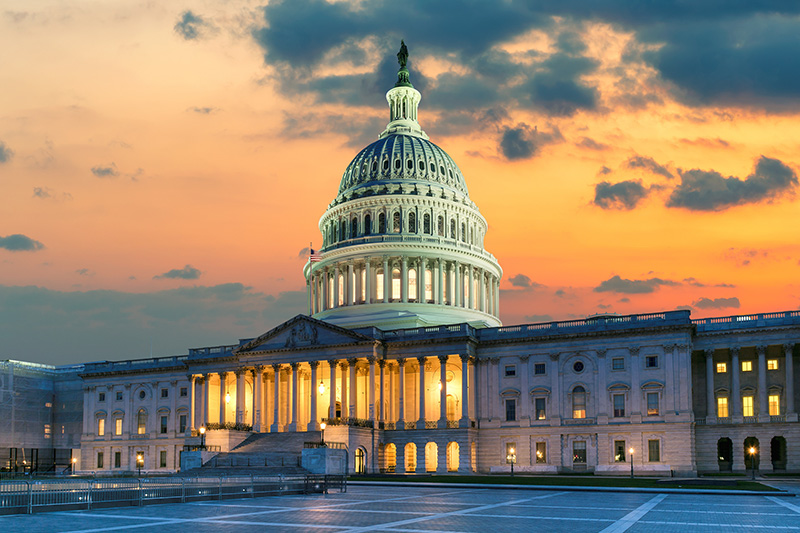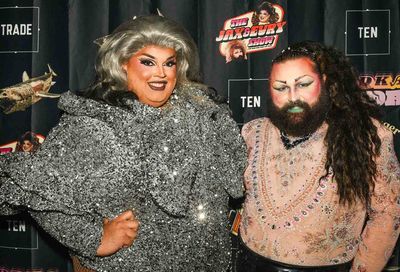Caitlyn Jenner Backs New York County’s Transgender Sports Ban
The transgender reality TV star defended an order banning sports teams with trans players from using a New York county's sports facilities.

Former Olympic gold medalist and reality TV star Caitlyn Jenner expressed support for a conservative New York County’s policy banning transgender female athletes from using county-owned facilities.
Nassau County Executive Bruce Blakeman instituted the ban via executive order last month.
Under it, any sports teams designated specifically for female athletes with transgender team members are prevented from competing or practicing at Nassau’s 100-plus county facilities. This includes all ballfields, basketball and tennis courts, swimming pools, and ice rinks.
Blakeman argued that allowing trans females to compete against cisgender female athletes is unfair and potentially dangerous, due to the biological and physiological differences that favor transgender athletes in any match-up.
However, the ban does not apply to co-ed teams, nor to male-designated sports teams where transgender males — who presumably would also be in danger or at a competitive disadvantage, per Blakeman’s logic — may be participating.
Speaking alongside Blakeman at his Mineola office on Monday, Jenner, who is transgender, backed the county executive’s actions, saying that allowing transgender athletes to compete against cisgender women will “ruin women’s sports for years to come.”
“Let’s stop it now while we can,” she said.
Jenner competed as a man when she won the Olympic gold medal in the decathlon in 1976. She said she has “sympathy” for the struggles that LGBTQ people face, but argued that allowing transgender athletes to compete on women’s teams undermines the progress female athletes have made since the passage of Title IX, the federal law that bars sex-based discrimination in educational and athletic programs at institutions receiving federal funds.
“All I’m trying to do is protect women,” the 74-year-old Jenner said.
The LGBT Network, a Long Island-based advocacy group, criticized Jenner’s comments as a “baffling contradiction” to her own insistence on being recognized as a woman, characterizing the stance as “not only hypocritical but harmful” to the LGBTQ community.
“It is disheartening to witness someone who has experienced the challenges of being marginalized actively contribute to the oppression of others within the same community,” David Kilmnick, president of the LGBT Network, said in a statement. “Such actions only serve to amplify the voices of intolerance and detract from the collective efforts towards a more inclusive society.”
Earlier this month, New York Attorney General Letitia James (D) sent a cease-and-desist order to Blakeman, declaring the ban to be discriminatory and violates New York’s LGBTQ-inclusive nondiscrimination laws. James urged Blakeman to rescind his order or risk a lawsuit.
James also argued that to enforce the ban, officials would have to subject all female athletes — including cisgender ones — to “intrusive and invasive questioning,” including questions about their genitals.
“We have no room for hate or bigotry in New York,” James said in a press release. “This executive order is transphobic and blatantly illegal.”
Blakeman, along with a 16-year-old volleyball player and her parents, subsequently filed his own lawsuit against the state, asking a federal court to affirm that the executive order was legal. He argued that, without his executive order, cisgender women would be denied equal opportunities in athletics and would put themselves at risk of injury or severe harm, especially in contact sports.
The New York Civil Liberties Union subsequently filed a lawsuit against Nassau County on behalf of a local women’s roller derby league, alleging that the executive order violates state human and civil rights laws intended to protect transgender or gender-nonconforming individuals from discrimination.
The league at the center of the lawsuit, the Long Island Roller Rebels, has asked a state court to declare the Nassau County policy discriminatory and permanently overturn it.
At least 25 states — primarily those where Republicans control the state legislature and the governor’s office — have passed laws stopping transgender athletes from participating on sports teams that do not match their assigned sex at birth.
Some of those laws — namely, in Arizona, Idaho, Utah, and West Virginia — have been blocked temporarily by state or federal courts.
Support Metro Weekly’s Journalism
These are challenging times for news organizations. And yet it’s crucial we stay active and provide vital resources and information to both our local readers and the world. So won’t you please take a moment and consider supporting Metro Weekly with a membership? For as little as $5 a month, you can help ensure Metro Weekly magazine and MetroWeekly.com remain free, viable resources as we provide the best, most diverse, culturally-resonant LGBTQ coverage in both the D.C. region and around the world. Memberships come with exclusive perks and discounts, your own personal digital delivery of each week’s magazine (and an archive), access to our Member's Lounge when it launches this fall, and exclusive members-only items like Metro Weekly Membership Mugs and Tote Bags! Check out all our membership levels here and please join us today!
























You must be logged in to post a comment.